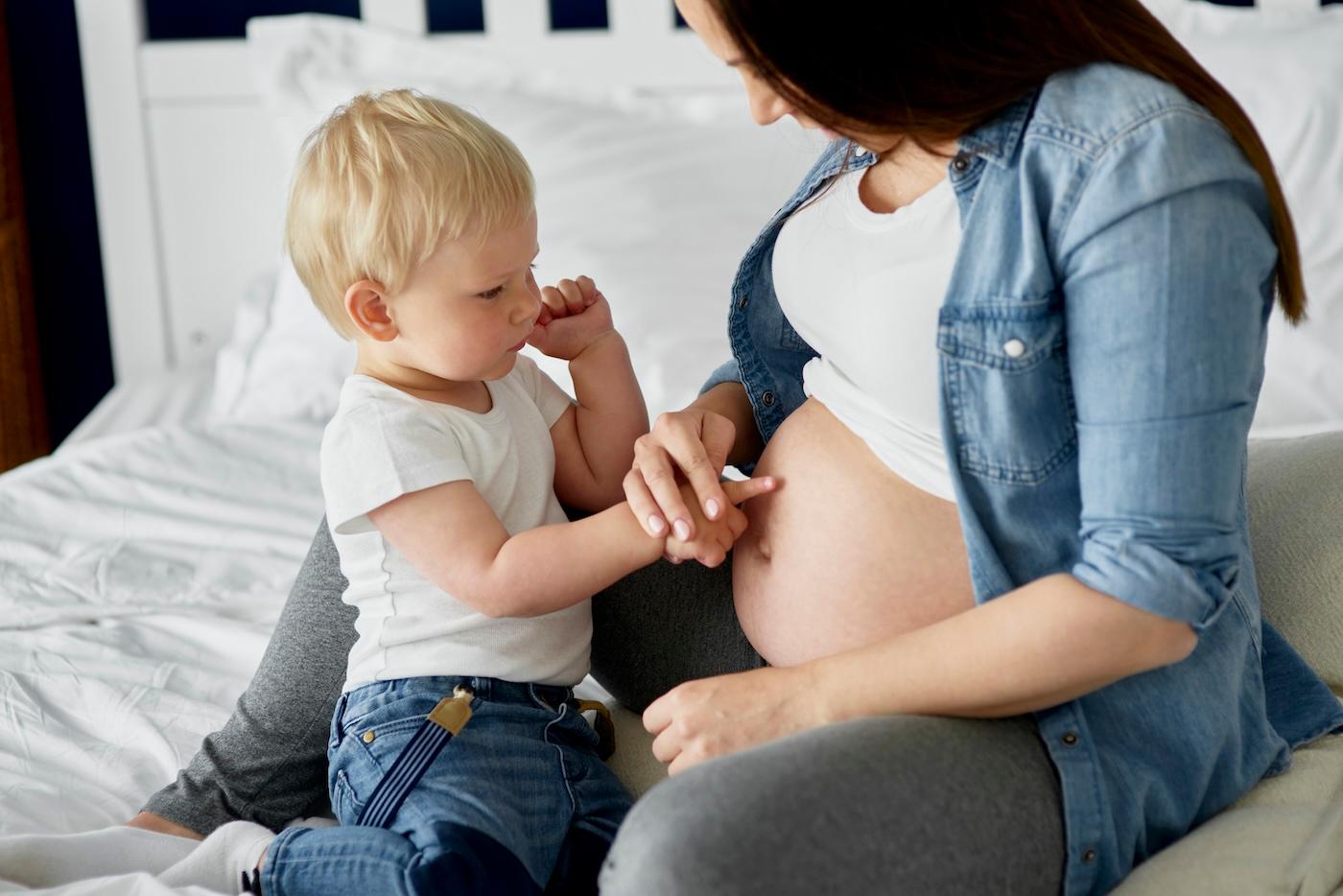TODDLER
Early Autism Signs Parents Need to Know
Dr. Harvey Karp shares some of the early autism signs that show up in young children—and what to do next.

Written by
Dr. Harvey Karp

These days, autism is a well-known neurological disorder that virtually all parents have heard of. And many may have wondered about their own child’s development at one point or another. After all, any parent who has been to a playgroup, has more than one child, or has the internet has probably compared their child’s development to others…whether they want to or not! Though we all know that kids develop at their own pace, spotting differences—Why doesn't my baby vocalise more? Shouldn't they be pointing? How come my toddler hates wearing socks?—can cause stress.
While no paediatrician—including myself—wants to create unnecessary worry, it is important to pay attention to your baby’s milestones, especially their social and language milestones. Some of your baby's so-called quirks or late-bloomer tendencies may be in the range of typical development...but some may be early signs of autism spectrum disorder (ASD). What many parents might not realise is, characteristics of autism often start in infancy and autism can be diagnosed as young as 18 months of age. Research shows that early diagnosis and early intervention for autism have major long-term positive effects on symptoms and later skills, but too often early warning signs are overlooked until a child reaches 2 or 3 years (or older). Plus, a new study shows that when people learn they are autistic when they are young, they appear to have improved quality of life and sense of well-being as grownups. All good things!
So, if you have any questions about your toddler’s development, keep reading. Here, I have outlined some social, communication, and behavioural differences that may possibly point to autism spectrum disorder—and details surrounding what to do next. However, only a healthcare provider can make that call! Take note of anything that concerns you, and bring it up with your child’s provider, who will be able to evaluate your child.
Early Autism Signs: Communication Differences
Communication challenges often tip off parents to a potential autism spectrum disorder diagnosis. That is because children with ASD often struggle with not only understanding communication (verbal and non-verbal communication, like facial expression and body language), but expressing themselves, too (sharing thoughts, feelings, needs, and wants to others). Some of these differences may include:
- Not nodding or using hand gestures, such as pointing to an object they want
- Not reacting to their name, but responding to other sounds, like a doorbell ringing
- Not engaging in pretend play
- Not saying their first word by 15 months
- Not saying two-word phrases by 24 months
- Losing language or other social milestones between 15 months and 2 years old
- Copy-catting what others say without understanding the meaning
- Making repetitive noises
- Using pronouns incorrectly, like referring to themselves as 'you'
Early Autism Signs: Social Differences
It can be difficult for children with autism to recognise and understand certain social cues. That means your child may not intuitively know how to react to others in some social situations. Social differences may show up in the following ways:
- Not responding when you smile at them
- Not following your pointed finger to see what you are referring to
- Not bringing objects of interest to show you, like a cool rock they found
- Using inappropriate facial expressions, such as smiling when someone is upset
- Difficulty making or maintaining eye contact
- Showing a lack of concern/empathy for others
- Difficulty making and keeping friends
Early Autism Signs: Behavioural Differences
Certain behaviours—like repetitive actions and sensory processing issues—can raise a red flag that your child may need to be evaluated for autism. Having very strong interests that are super narrow and intense may be a warning sign, too. For example, a recent report found that 44% of autistic youth have an intense interest in bright or vividly coloured objects, spinning objects, soft or textured objects. Some behavioural differences to look for include:
- Being ultra-sensitive (or not sensitive at all) to certain sounds, smells, textures, light, and touch
- Looking at objects from unusual angles
- Engaging in repetitive behaviours, such as rocking, spinning, twirling fingers, or flapping hands
- Playing with parts of toys instead of the whole toy, like zeroing on spinning wheels, not the toy truck
- Not crying when in pain
- Walking on toes for an extended period
- Rigidity over routines and rituals
- Difficulty transitioning from one activity to another—or with other changes
- Being super-focused on a few or unusual activities
- Difficulty managing emotions and/or having frequent, extended tantrums
- Pulling you by the hand and pointing to show you something without making eye contact
What do early autism signs mean?
Please remember that no two children with autism spectrum disorder will have the same exact early signs—the number (and severity) of symptoms can vary immensely. And of course, some of the traits above show up in neurotypical kids, too! That said, if you spot what you suspect may be any early signs of autism—or have any questions about your little one’s development—do not hesitate to see your healthcare provider. While a potential diagnosis might seem scary, catching autism at a young age allows your tot to get the intervention they need…when it benefits them most.
What interventions are there for autism spectrum disorder?
Children who are diagnosed with autism today have many intervention options available. And those interventions can make a world of difference. For example, researchers found that when toddlers received early one-on-one intervention (15 hours a week for one year) their receptive language, expressive communication, nonverbal ability, and other autism symptoms all improved. You can learn about available autism intervention options at Child Autism UK and the National Autistic Society.
For more information about autism—early signs, diagnosis, and treatment—please reach out to your child’s healthcare provider.
Disclaimer: The information on our site is NOT medical advice for any specific person or condition. It is only meant as general information. If you have any medical questions and concerns about your child or yourself, please contact your health provider. Breastmilk is the best source of nutrition for babies. It is important that, in preparation for and during breastfeeding, mothers eat a healthy, balanced diet. Combined breast- and bottle-feeding in the first weeks of life may reduce the supply of a mother's breastmilk and reversing the decision not to breastfeed is difficult. If you do decide to use infant formula, you should follow instructions carefully.
SHARE THIS ARTICLE
PARENT PICKS
Bestsellers



















